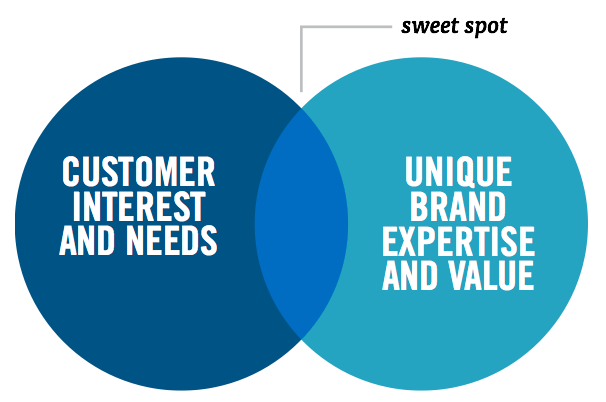What is the difference between traditional content marketing and an online content destination?
First, we need to define what exactly constitutes an online content destination.
Big brands such as Dollar Shave Club and Pepsi are getting in on the action, spending money and hiring journalists.
But is this worth the investment?
What is an Online Content Destination?
It is pretty much defined by its words.
It's not only content on a brand's blog or website, but a separate website, center, or "destination," with a bevy of content curated and produced by a brand's editorial staff.
This staff no longer consists of just copywriters and content engineers - companies are seeking experienced journalists to up the ante on quality content.
A recent article in the Wall Street Journal (WSJ) explores the case of Casper, a mattress company. They are spending dollars on actual journalists to create a destination centered around the hot-button topic of sleep.
 This might seem self-explanatory - a mattress company offering content on sleep. But this isn't a simple, 5 Ways to Get a Good Night's Sleep article posted on a brand's website or blog to capture the attention of a customer along the buyer's journey. This is a company spending money on people with journalistic training and experience to offer real advice on everything sleep.
This might seem self-explanatory - a mattress company offering content on sleep. But this isn't a simple, 5 Ways to Get a Good Night's Sleep article posted on a brand's website or blog to capture the attention of a customer along the buyer's journey. This is a company spending money on people with journalistic training and experience to offer real advice on everything sleep.
Casper felt that quality editorials on sleep were missing in the market, and they were the brand to fill that gap. According to the WSJ article,
“Sleep is a growing subject that lacks a true editorial authority,” said Lindsay Kaplan, Casper’s vice president of communications.
And Casper isn't the only brand to invest in this.
Excelling at Basic Brand Content First
 Dollar Shave Club is also creating their own destination. The brand isn't simply planning to post articles on how to get the closest shave of your life.
Dollar Shave Club is also creating their own destination. The brand isn't simply planning to post articles on how to get the closest shave of your life.
They are hiring a separate editorial staff, and are currently in the process of deciding whether they want to implement a stand- alone website, or if they want to overhaul their current blog.
Dollar Shave Club wants to create a lifestyle destination, focusing on more than just shaving techniques. What exactly they will postulate on remains to be seen, but I can imagine articles about the latest in men's hairstyles, fashion, and travel-presumably in a tongue-in-cheek, snarky style, similar to their well-known videos.
Dollar Shave Club showed content savvy with their video advertising, including one of my personal favorite "offensive lines" referring to a razor only needing one blade: "Your handsome a** grandfather only had one blade-and polio."
They excelled at their video content, so while they might have a better chance of producing other types of high quality content, Dollar Shave Club has to compete against the large number of other lifestyle websites, blogs, and magazines. This is where their brand cache and the trust they have built up with their customer base comes in. They are going to need it to bring customers to their new destination.
Is the Investment Worth It?
We recently talked about the rise of brand journalists.
But now the line between brands and journalism is being blurred even further. Are journalists able to keep an impartial ethic when they are specifically hired by a brand to write content pertaining to the brand, or at the very least, as an extension of the brand?
The explosion of content in recent years has led to brands needing to compete against more and more noise, while journalism has seen the parallel happenstance of a decline in quality. When anyone can write a blog and be a self-proclaimed thought influencer or citizen journalist, where does the expertise truly lay?
From a brand perspective, this move can be seen as a concentrated effort to increase quality in content. These are people with hopefully real research skills, that will not simply use tweets as sources or examples to back up a claim.
The ROI on these online content destinations remains to be seen, as Dollar Shave Club and Casper have yet to fully implement these centers. Casper's website has a popup ad that simply says, Good things are coming soon. Let's hope so.
What do you think about these destinations? Let us know in the comments?




